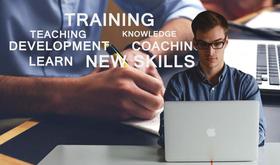Even though community colleges are seeing higher enrollment levels than ever before, not all these new students of higher education are getting the type of college experience they were hoping for. According to a new survey conducted by Pearson Foundation and Harris Interactive, many community college students feel unprepared for the rigors of college coursework. Students are also getting shut out of classes at many schools, leaving many waiting longer than two years to complete their degree and certification programs.
Harris Interactive conducted The recent survey online on behalf of Pearson Foundation in August and September 2011. The survey polled 1,205 community college students on various issues regarding school, including ease of getting necessary courses and the difficulty level of college-level coursework compared to high school classes. The survey results have been published on the websites of both Pearson Foundation and Harris Interactive. Several news sources have reported on the findings as well.
Preparation Lacking for Students Entering Community College
According to the Harris Interactive website, the survey found that more than half (52%) of all community college students felt unprepared for college-level coursework. Many felt their high schools did not adequately prepare them for higher education by placing a higher emphasis on basic skills, offering more courses, and making courses more challenging.
Amy Evans, a spokeswoman for Cisco College in Texas, told the Abilene Reporter-News that about one-third of the students who enroll at Cisco require some developmental education to prepare for the rigors of college coursework. During the fall semester this year, Evans said, "520 out of 1,674 freshmen required developmental courses in math and/or English.”
“These courses are designed to help students fill in their educational gaps with regard to math, reading and writing,” Evans added.
In addition, the majority of students polled (71%) found themselves working much harder in college than in high school. Many of these students admitted that their high schools should have worked harder to prepare them for the requirements of higher education. However, high schools often find themselves in a catch-22 when trying to prepare all of their students for additional education or professional lives beyond high school.
“There are some students who feel that they are not ready for college classes,” Joey Light, superintendent for Wylie Independent School District, told the Abilene Reporter-News. “We have many students that think Wylie is too rigorous,” Light added. Light said the answer may be found with the students themselves rather than the schools.
“If they take our most rigorous courses, they will be better prepared,” Light explained. “If they dodge the rigorous courses, they will not be prepared.”
Cathy Ashby, a spokesperson for the Abilene Independent School District, agrees. Ashby told the Abilene Reporter-News that parents and educators should continue to push students to challenge themselves academically while still in high school.
“One mistake I often hear from parents is their desire to want their children to have an ‘easy senior year’,” Ashby told the Reporter-News. “This is a big mistake if we want our students to be prepared for college.”
Course Enrollment Proves Challenging for Many Students
Another finding in the survey was that nearly four in every 10 students who enroll in community college could not get the classes they need for their schedule because courses fill up too quickly. Overcrowding has been an ongoing problem for many community colleges nationwide, particularly in light of the rise in enrollment many schools have seen since the economic slowdown began and displaced workers began looking to community colleges as a means to a career change.
For some colleges, the answer has been to offer an array of online courses that allow more students to get their required courses in a timely fashion. The Pearson Foundation survey also polled students about their satisfaction with the online courses they took compared to courses completed in person. The survey found that while the large majority of students (81%) found online courses more convenient, 61 percent also found courses taken in this fashion more challenging.
According to a report in the Ed Map, these findings correlate with another study: The 2011 ECAR National Survey of Undergraduate Students and Information Technology. This report found that more than half of students surveyed would like to see more online implementation of their current courses. Hybrid models, which combined online elements and personal class instruction, were also popular in this survey.
Technology on the Rise for Community College Students
The Pearson Foundation survey also polled students about the amount of technology they brought to the classroom. The study found that nearly 10 percent of all community college students now own some sort of tablet, a figure that tripled from 2010 to 2011. In addition, two-thirds of tablet owners use them while doing homework, and 42 percent use their smartphones for the same purpose.
Surveys like this one offer valuable information to the education community at large. Mark Nieker, president and CEO of Pearson Foundation, stated in a press release on the organization’s website, “This survey underscores the value of the students’ own voices in shaping our perceptions of today’s community college experience. Identifying the way these students learn and understanding the technological and academic supports they feel they need to thrive is helpful in making progress toward their long-term success.”
Questions? Contact us on Facebook. @communitycollegereview














